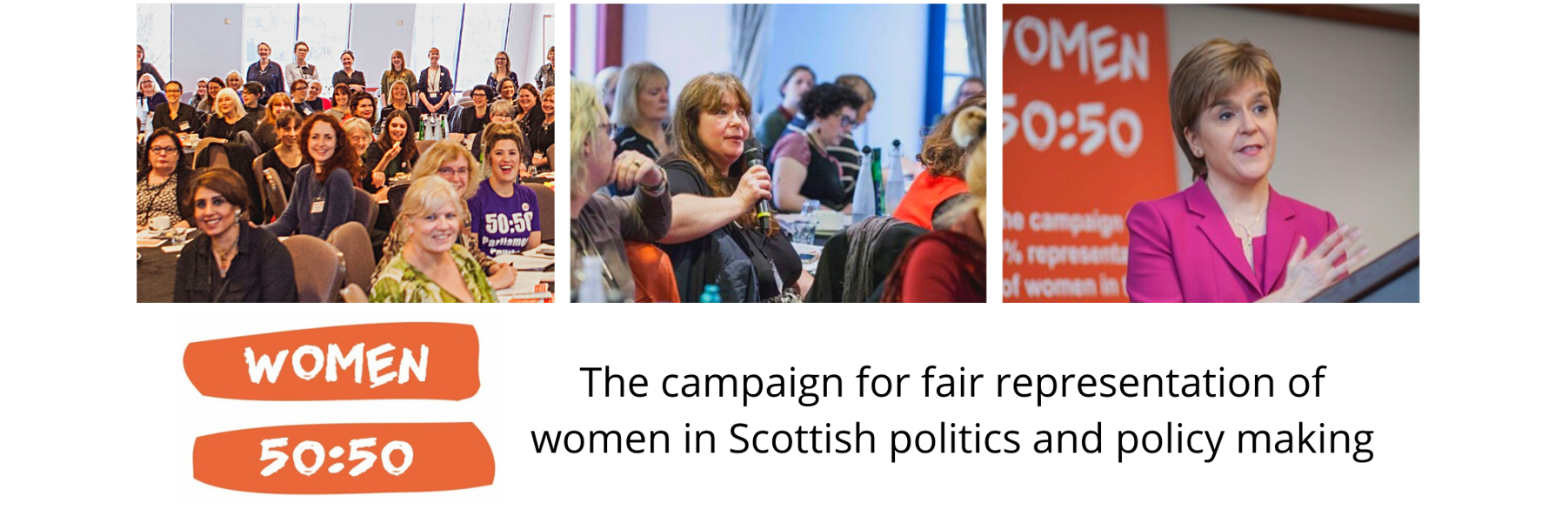By Talat Yaqoob, Chair and Co-Founder of Women 50:50
I don’t look at my ballot paper and automatically vote for a woman because she’s a woman. I vote based on my political beliefs; I vote for the candidate, and party they are attached to, based on their views and policies, and whether they will make progress on the (left wing) things I care about. I am asked often why Women 50:50 is advocating for more women in politics, when some of these women might not be feminists? My immediate response is; why on earth is this caveat placed on the campaign, when nobody has the same expectations from the generations of over-represented men in public office?
Here’s the deal; I don’t want to just see more women in politics for the sake of it, I want and would vote for left-wing, feminist anti-racist, power and wealth redistributing women…and that’s what I hope to have the choice of at the ballot box. But I can only do that if the system of politics changes and those women actually get a fair playing field to stand.
Women 50:50 highlights one *just one* example of systemic inequality faced by women (particularly women of color, working class women and disabled women) at the hands of our democracy. Women’s under-representation is a reflection of deeply embedded inequality, and every aspect from caring roles within the home to media misrepresentation play a role in maintaining this under-representation. The campaign is to tackle this through legislated candidate quotas, forcing parties to change their processes, their cultures, and maybe in some cases the people who are acting as gatekeepers and preventing progress.
Having more women in positions of power is not a guarantee that politics will work for most women. Especially if the women are in privileged positions already (this is why a diverse range of women need to have equal access to power). However, multiple research studies have indicated that more women in power can improve the decisions of nations across policy areas; including security, welfare and education. Tackling under-representation is a focused effort campaign about creating pathways to make decision making accessible to all women and therefore potentially improve decision making. But the decision of who is elected remains with the electorate, and this may not always be to the benefit of women. That is why, whilst we tackle under-representation, we must jointly fight for better policy and outcomes for all women.
Since the campaign launched 6 years ago, there is more emphasis than ever on diversity in politics. Even those parties who are against Women 50:50 are upping their interest in diversity and inclusion…that still won’t get my vote. My vote is mine to cast and this campaign does not advocate for any candidates simply because they are women. What I am interested in, is a party which takes women’s representation seriously and makes way for women candidates, as well as advocating for policies which make women’s lives (particularly women of colour, women in poverty and migrant womens’ lives) significantly fairer. It is not either or, it must be BOTH. However, I am seeing an increase in the rhetoric around diversity being used as a shield for women representatives or MPs who are people of colour to prevent criticism when their policy positions disproportionately harm those very groups. No, we are not here for that. The issue of under-representation is not your cover.
I have been asked if Women 50:50 would see an increase in right-wing women in politics as a win. Well no, we wouldn’t because unless suddenly that also meant public life was free from sexism and bigotry (which if only one set of women were advancing e.g. white, middle class women, which is what happens now) would indicate that it is not…) it is not any kind of win.
But being able to participate in politics without experiencing racism, sexism or bigotry cannot be conditional. Either it is for all of us, or it works for none of us. For example; I have zero interest in Priti Patel, I vehemently disagree with her on pretty much everything and I do so, vocally, however despite this disagreement, yes, I think she has the right to exist in public life without experiencing sexism and racism. That right cannot be conditional on her political beliefs, because then, it can also be conditional on my political beliefs, or yours. That is the purpose of Women 50:50.
No, I don’t intend to vote for anyone based on their personal characteristics and I hope you don’t either. A candidate charing my gender, my religion or my race, doesn’t mean they share my politics or are my ally. I, and this campaign, simply believe that all of us have the right to take part in politics, at any level, without these characteristics being discriminated against or being the reason for our exclusion.

